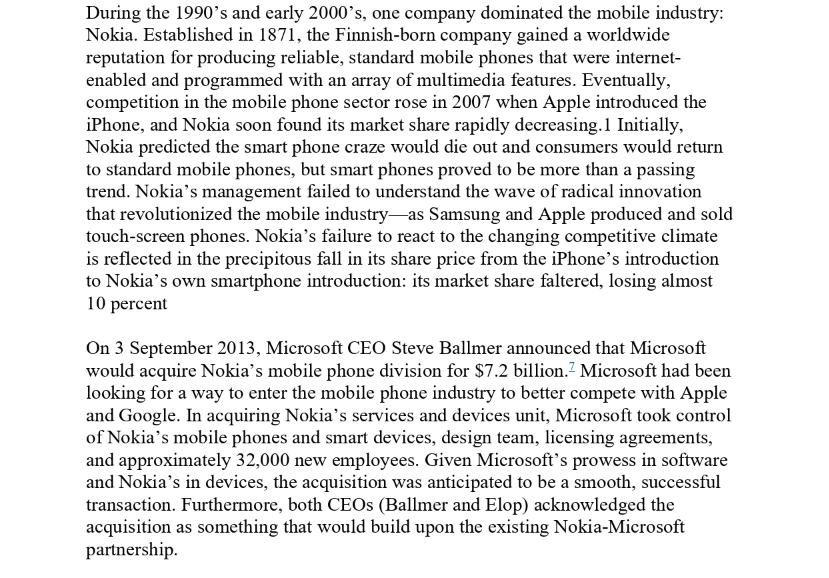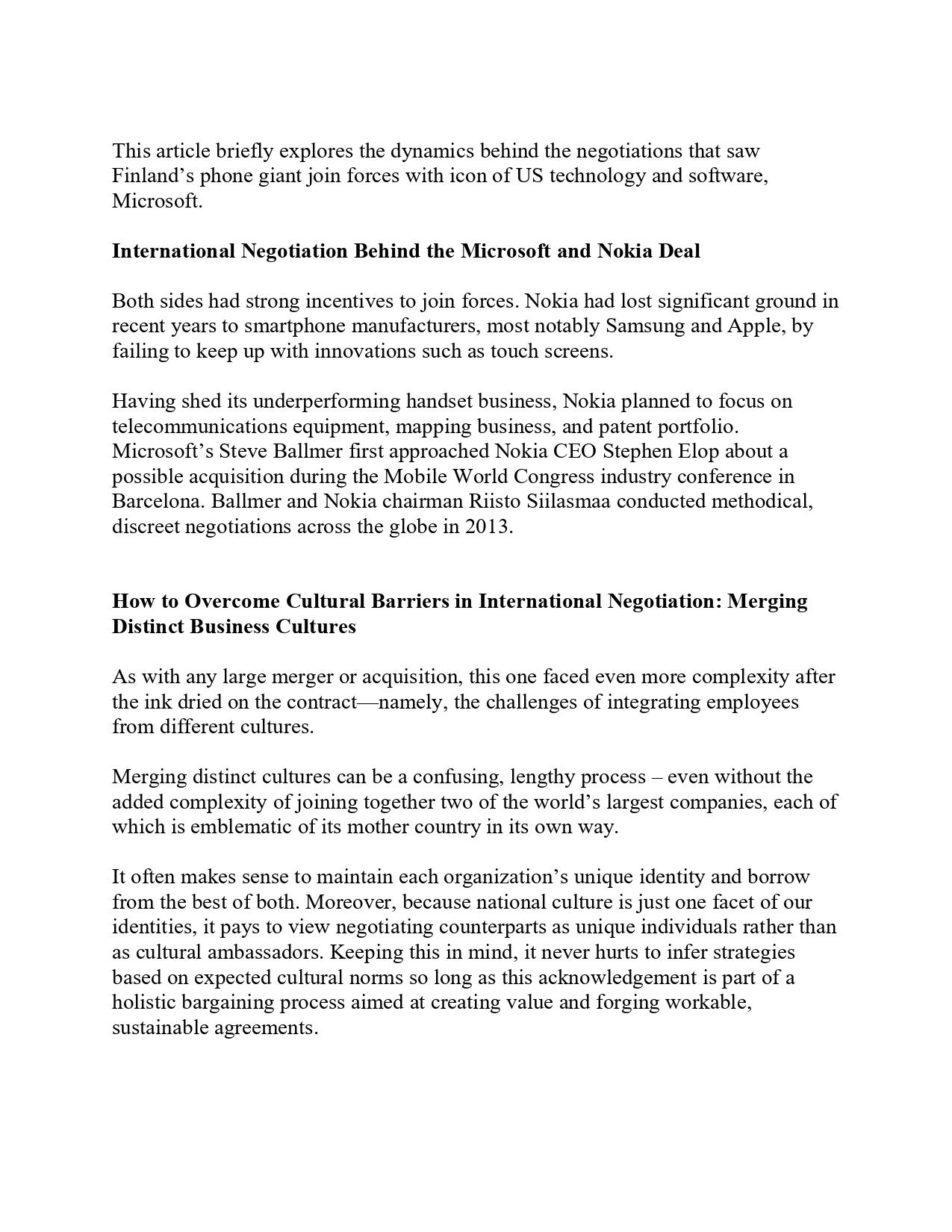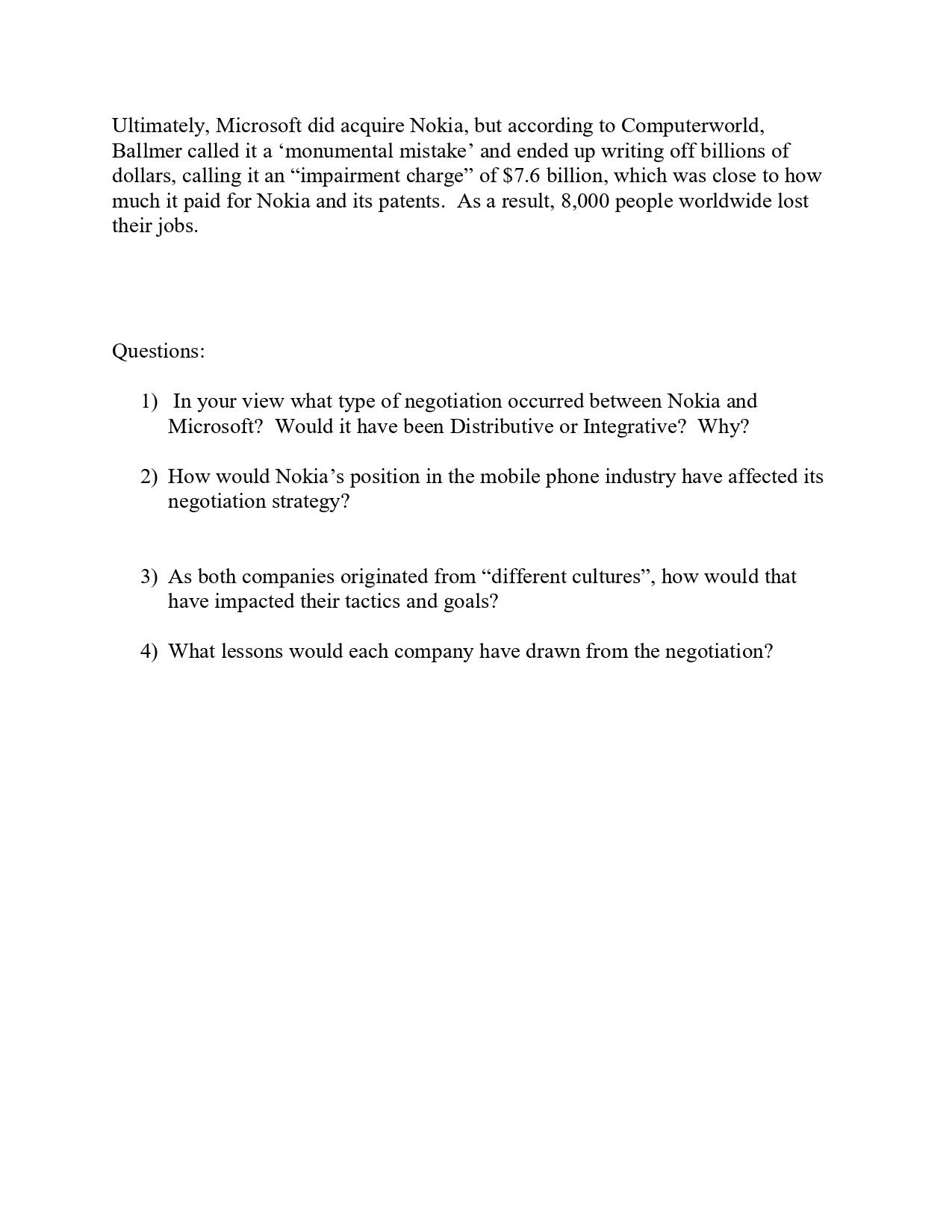Answered step by step
Verified Expert Solution
Question
1 Approved Answer
During the 1990's and early 2000's, one company dominated the mobile industry: Nokia. Established in 1871, the Finnish-born company gained a worldwide reputation for




During the 1990's and early 2000's, one company dominated the mobile industry: Nokia. Established in 1871, the Finnish-born company gained a worldwide reputation for producing reliable, standard mobile phones that were internet- enabled and programmed with an array of multimedia features. Eventually, competition in the mobile phone sector rose in 2007 when Apple introduced the iPhone, and Nokia soon found its market share rapidly decreasing.1 Initially, Nokia predicted the smart phone craze would die out and consumers would return to standard mobile phones, but smart phones proved to be more than a passing trend. Nokia's management failed to understand the wave of radical innovation that revolutionized the mobile industry as Samsung and Apple produced and sold touch-screen phones. Nokia's failure to react to the changing competitive climate is reflected in the precipitous fall in its share price from the iPhone's introduction to Nokia's own smartphone introduction: its market share faltered, losing almost 10 percent On 3 September 2013, Microsoft CEO Steve Ballmer announced that Microsoft would acquire Nokia's mobile phone division for $7.2 billion. Microsoft had been looking for a way to enter the mobile phone industry to better compete with Apple and Google. In acquiring Nokia's services and devices unit, Microsoft took control of Nokia's mobile phones and smart devices, design team, licensing agreements, and approximately 32,000 new employees. Given Microsoft's prowess in software and Nokia's in devices, the acquisition was anticipated to be a smooth, successful transaction. Furthermore, both CEOs (Ballmer and Elop) acknowledged the acquisition as something that would build upon the existing Nokia-Microsoft partnership. The agreement marked a belated but bold move by Microsoft to upgrade its presence in handheld devices and signals an end to Nokia's long struggle to enter the hyper-competitive (and extremely lucrative) smartphone market. What negotiating skills brought negotiators to an agreement in one of the tech industry's largest acquisitions and what bargaining strategies can business negotiators use to bring competitors to a negotiated agreement in similar negotiation scenarios? This article briefly explores the dynamics behind the negotiations that saw Finland's phone giant join forces with icon of US technology and software, Microsoft. International Negotiation Behind the Microsoft and Nokia Deal Both sides had strong incentives to join forces. Nokia had lost significant ground in recent years to smartphone manufacturers, most notably Samsung and Apple, by failing to keep up with innovations such as touch screens. Having shed its underperforming handset business, Nokia planned to focus on telecommunications equipment, mapping business, and patent portfolio. Microsoft's Steve Ballmer first approached Nokia CEO Stephen Elop about a possible acquisition during the Mobile World Congress industry conference in Barcelona. Ballmer and Nokia chairman Riisto Siilasmaa conducted methodical, discreet negotiations across the globe in 2013. How to Overcome Cultural Barriers in International Negotiation: Merging Distinct Business Cultures As with any large merger or acquisition, this one faced even more complexity after the ink dried on the contract-namely, the challenges of integrating employees from different cultures. Merging distinct cultures can be a confusing, lengthy process - even without the added complexity of joining together two of the world's largest companies, each of which is emblematic of its mother country in its own way. It often makes sense to maintain each organization's unique identity and borrow from the best of both. Moreover, because national culture is just one facet of our identities, it pays to view negotiating counterparts as unique individuals rather than as cultural ambassadors. Keeping this in mind, it never hurts to infer strategies based on expected cultural norms so long as this acknowledgement is part of a holistic bargaining process aimed at creating value and forging workable, sustainable agreements. Ultimately, Microsoft did acquire Nokia, but according to Computerworld, Ballmer called it a 'monumental mistake' and ended up writing off billions of dollars, calling it an "impairment charge" of $7.6 billion, which was close to how much it paid for Nokia and its patents. As a result, 8,000 people worldwide lost their jobs. Questions: 1) In your view what type of negotiation occurred between Nokia and Microsoft? Would have been Distributive or Integrative? Why? 2) How would Nokia's position in the mobile phone industry have affected its negotiation strategy? 3) As both companies originated from "different cultures", how would that have impacted their tactics and goals? 4) What lessons would each company have drawn from the negotiation?
Step by Step Solution
There are 3 Steps involved in it
Step: 1
Negotiation Analysis Microsoft Nokia 1 Negotiation Type This negotiation between Nokia and Microsoft was likely a combination of integrative and distr...
Get Instant Access to Expert-Tailored Solutions
See step-by-step solutions with expert insights and AI powered tools for academic success
Step: 2

Step: 3

Ace Your Homework with AI
Get the answers you need in no time with our AI-driven, step-by-step assistance
Get Started


